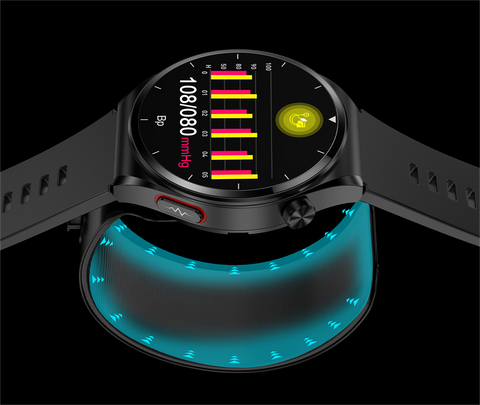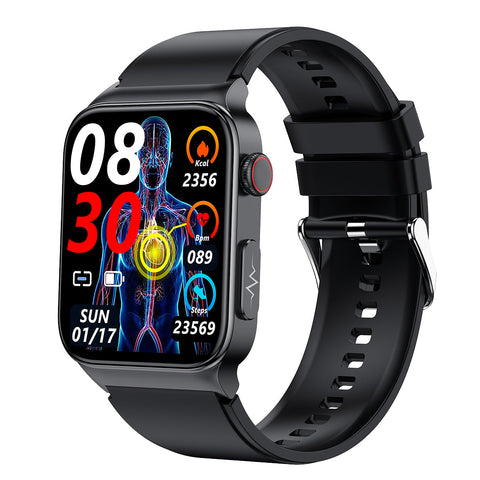Can You Eat Eggs if You Have High Cholesterol?
Eggs have long been a topic of debate, especially for individuals concerned about their cholesterol levels. For years, people were advised to limit their egg consumption due to their high cholesterol content. However, recent research has challenged this notion, leading to confusion among health-conscious individuals. So, can you eat eggs if you have high cholesterol?
Understanding Cholesterol: Before delving into the relationship between eggs and cholesterol, it's essential to understand what cholesterol is and its role in the body. Cholesterol is a waxy, fat-like substance found in every cell of the body and is crucial for various physiological functions, including hormone synthesis and cell membrane structure. However, when levels of cholesterol become elevated, it can lead to health issues such as heart disease and stroke.
Types of Cholesterol: Cholesterol exists in two main forms: low-density lipoprotein (LDL) and high-density lipoprotein (HDL). LDL cholesterol, often referred to as "bad" cholesterol, can build up in the arteries, leading to plaque formation and increasing the risk of cardiovascular disease. On the other hand, HDL cholesterol, known as "good" cholesterol, helps remove LDL cholesterol from the bloodstream, reducing the risk of heart disease.
Eggs and Cholesterol Content: Eggs are often criticized for their cholesterol content, with one large egg containing approximately 186 milligrams of cholesterol, primarily found in the yolk. This has led to concerns that consuming eggs may raise LDL cholesterol levels and increase the risk of heart disease, particularly in individuals with high cholesterol levels.
The Egg Debate: For years, health authorities recommended limiting egg consumption, especially for individuals with high cholesterol or at risk of heart disease. However, more recent research has challenged this advice. Studies have shown that for most people, dietary cholesterol intake from foods like eggs has a minimal impact on blood cholesterol levels, particularly LDL cholesterol.
Research Insights: Several studies have examined the relationship between egg consumption and cholesterol levels. A meta-analysis published in the British Journal of Nutrition analyzed data from 17 studies and found that egg consumption did not significantly impact LDL cholesterol levels in most individuals. Another study published in the American Journal of Clinical Nutrition concluded that consuming up to seven eggs per week did not increase the risk of heart disease or stroke in healthy individuals.
Factors to Consider:
While eggs can be part of a healthy diet, there are some factors to consider, especially for individuals with high cholesterol:
- Overall Dietary Pattern: It's essential to focus on the overall dietary pattern rather than singling out individual foods. A diet high in saturated and trans fats, processed foods, and sugary treats is more likely to contribute to high cholesterol levels and cardiovascular issues than the occasional consumption of eggs.
- Individual Response: Cholesterol metabolism varies from person to person. Some individuals are more sensitive to dietary cholesterol intake, while others are not. If you have high cholesterol or other risk factors for heart disease, it's essential to monitor your cholesterol levels and consult with a healthcare professional for personalized dietary advice.
- Preparation Methods: How eggs are prepared can also influence their impact on cholesterol levels. Opting for boiled, poached, or scrambled eggs cooked with minimal added fats is healthier than frying them in butter or oil.
- Balance and Moderation: As with any food, moderation is key. While enjoying eggs as part of a balanced diet is unlikely to harm most individuals, consuming them excessively or in combination with other high-cholesterol foods may not be advisable.
In conclusion, the relationship between eggs and cholesterol is more nuanced than previously believed. While eggs do contain cholesterol, current research suggests that moderate egg consumption is unlikely to significantly impact cholesterol levels or increase the risk of heart disease in most individuals. As with any dietary choice, it's essential to focus on overall dietary patterns, lifestyle factors, and individual health status. So, if you have high cholesterol, you can still enjoy eggs as part of a balanced diet, but moderation and personalized advice are key.
Consider incorporating the BP Doctor smartwatch into your life
In today's digital age, technology plays a crucial role in our daily lives, including health monitoring. Smartwatches, equipped with various sensors and tracking capabilities, have emerged as valuable tools for tracking fitness metrics, monitoring health parameters, and promoting overall well-being.
Firstly, smartwatches can track physical activity levels, including steps taken, distance traveled, and calories burned. Regular physical activity is essential for maintaining healthy cholesterol levels and reducing the risk of heart disease. By providing real-time feedback on activity levels, smartwatches encourage users to stay active and incorporate exercise into their daily routine.
Secondly, many smartwatches feature heart rate monitoring functionality, allowing users to track their heart rate throughout the day and during exercise. Monitoring heart rate can provide insights into cardiovascular health and help individuals gauge their exercise intensity. For individuals with high cholesterol or at risk of heart disease, tracking heart rate can be particularly beneficial in ensuring safe and effective workouts.
Furthermore, some advanced smartwatches offer additional health monitoring features, such as blood oxygen saturation (SpO2) monitoring and electrocardiogram (ECG) capabilities. These features can provide valuable insights into overall health and potential risk factors for heart disease. Individuals with high cholesterol may benefit from regularly monitoring these parameters to maintain awareness of their cardiovascular health status.
Enter the BP Doctor store and choose your life partner!










